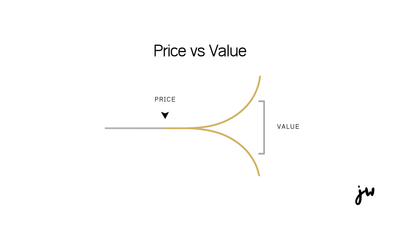The Personal Moat Philosophy

At its core, the Personal Moat is the idea of developing a unique combination of skills, knowledge, and traits that sets you apart and protects you from competition—just like a castle’s moat defends it from invaders.
Key Quote:
“Escape competition through authenticity.” – Naval Ravikant
The Foundation: You Can’t Compete Being the Same
Naval believes that if you're competing with others head-on using the same skills, you're fighting a race to the bottom. Eventually, someone will be cheaper, faster, or more available.
Instead of competing, become incomparable.
How to Build a Personal Moat
This philosophy revolves around combining 3 core ingredients:
1. Specific Knowledge
- Knowledge that’s learned through experience, obsession, or passion.
- Not something you get from school—it’s often acquired through curiosity, exploration, and real-world trials.
- Examples:
- “I deeply understand how storytelling works on TikTok.”
- “I’ve spent 10 years mastering niche SaaS pricing models.”
“Specific knowledge is found by pursuing your genuine curiosity and passion rather than what is hot right now.” – Naval
2. Accountability
- Owning your actions and being willing to put your name, face, and reputation behind your work.
- The more unique your ideas and presence, the more powerful your moat becomes.
- Example: People follow you because of your voice, not just your info.
Accountability is a multiplier. It adds trust to your uniqueness.
3. Leverage
- Tools that let you scale your uniqueness without scaling effort linearly.
- Types of leverage:
- Code – Build something once, it runs forever (software, systems).
- Media – Create once, share forever (videos, tweets, books).
- People – Teams that execute on your vision.
- When your uniqueness is amplified through leverage, it becomes a force.
“Fortunes require leverage. Business leverage comes from capital, people, and products with no marginal cost of replication (code and media).”
Your Unique Combination Is the Moat
The magic happens not in any one skill, but in the intersection of several skills, experiences, and traits that only you possess.
Example:
- You’re decent at graphic design.
- You’re a decent writer.
- You love behavioral psychology.
Alone, each is average.
Together? You could design viral psychology-based visual explainers that no one else is doing.
This intersection = your personal moat.
Why This Is a Competitive Edge
- Hard to copy: Others can’t easily replicate your exact combination of experiences, passions, and skills.
- Naturally energizing: Because it’s built on what you’re authentically interested in, it’s sustainable long-term.
- Attracts opportunity: The clearer and more unique your identity, the more people know what to come to you for.
How to Start Building Your Moat
- Reflect on what energizes you. What would you do even if no one paid you?
- Map your skill intersections. What are you above average at, even if not world-class?
- Be visible. Start sharing and creating. Your uniqueness needs to be seen.
- Stay consistent. The moat deepens over time.
Closing Thought
“Play long-term games with long-term people.”
Your personal moat doesn’t just make you successful. It makes you resilient and free.
Sources and References
1. Naval’s Podcast – How to Get Rich (without getting lucky)
- This podcast series outlines Naval’s core philosophy on wealth, leverage, and personal uniqueness.
- He discusses concepts like specific knowledge, accountability, and leverage—which together form the basis of a personal moat.
- Source: Naval Podcast: How to Get Rich
2. Naval Ravikant’s Blog and Website
- Naval’s website nav.al features short, powerful essays where he explains his ideas on building wealth through individuality and authenticity.
- Posts to look at:
3. The Almanack of Naval Ravikant
- Compiled by Eric Jorgenson, this free book brings together Naval’s ideas on wealth, happiness, and decision-making.
- Chapters 7–9 in particular dive into:
- Building Specific Knowledge
- Play Long-Term Games
- Become the Best in the World at What You Do
- Free Download / Read: navalmanack.com
Direct Quote:
“The most important skill for getting rich is becoming the kind of person who makes money easily. That starts with building specific knowledge, having accountability, and leveraging your uniqueness.”
4. Twitter (Now X) Threads
- Naval frequently distilled his ideas into concise threads. The most famous one:
5. Podcast Appearances (e.g. Joe Rogan, Tim Ferriss)
Subscribe to our newsletter.
Become a subscriber receive the latest updates in your inbox.






Member discussion